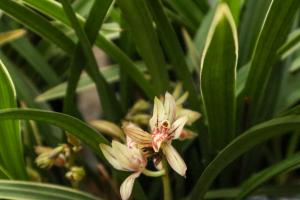Can Plants Drink Tap Water?
Many plant owners wonder whether their leafy friends can thrive on tap water or if only purified or distilled water will do. The answer is not as straightforward as you might think.
The Short Answer
Yes, plants can drink tap water, and in most cases, they actually prefer it. This is because tap water contains trace minerals that are beneficial to plant growth. However, there are some exceptions to this rule, so let's take a closer look.
The Long Answer
While tap water is generally safe to drink, there are certain things that can make it unsuitable for plants. One common issue is the presence of chlorine in tap water, which can damage the delicate roots of plants. To avoid this, you can let the tap water sit out for 24 to 48 hours before using it to water your plants. This will allow the chlorine to evaporate, making the water safer for your greenery.
Another concern with tap water is the presence of heavy metals such as lead, arsenic, and mercury. While these elements are typically found in very small amounts in tap water, they can accumulate in the soil over time and harm your plants. To reduce the risk, consider investing in a water filtration system that can remove these impurities from your tap water before you use it for watering.
It's also important to note that the quality of tap water can vary depending on where you live. Some municipalities have more stringent water quality standards than others, so be sure to research your local water supply to see if any additional precautions are necessary.
When to Use Purified Water
In some cases, using purified water may be necessary to keep your plants healthy. For example, if you have very sensitive plants that are prone to developing root rot, using purified water can help prevent this condition. Additionally, if you live in an area with hard water (water that has a high mineral content), using purified water can help avoid mineral buildup in the soil, which can make it difficult for plants to absorb nutrients.
The Bottom Line
In most cases, tap water is perfectly safe for plants and can actually be beneficial to their growth. However, if you have concerns about the quality of your tap water or if you notice that your plants are not thriving as well as they should be, it may be worth investing in a water filtration system or using purified water. Ultimately, the best approach will depend on the specific needs of your plants and the quality of your local water supply.

 how many times do yo...
how many times do yo... how many planted tre...
how many planted tre... how many pine trees ...
how many pine trees ... how many pecan trees...
how many pecan trees... how many plants comp...
how many plants comp... how many plants can ...
how many plants can ... how many plants and ...
how many plants and ... how many pepper plan...
how many pepper plan...






























